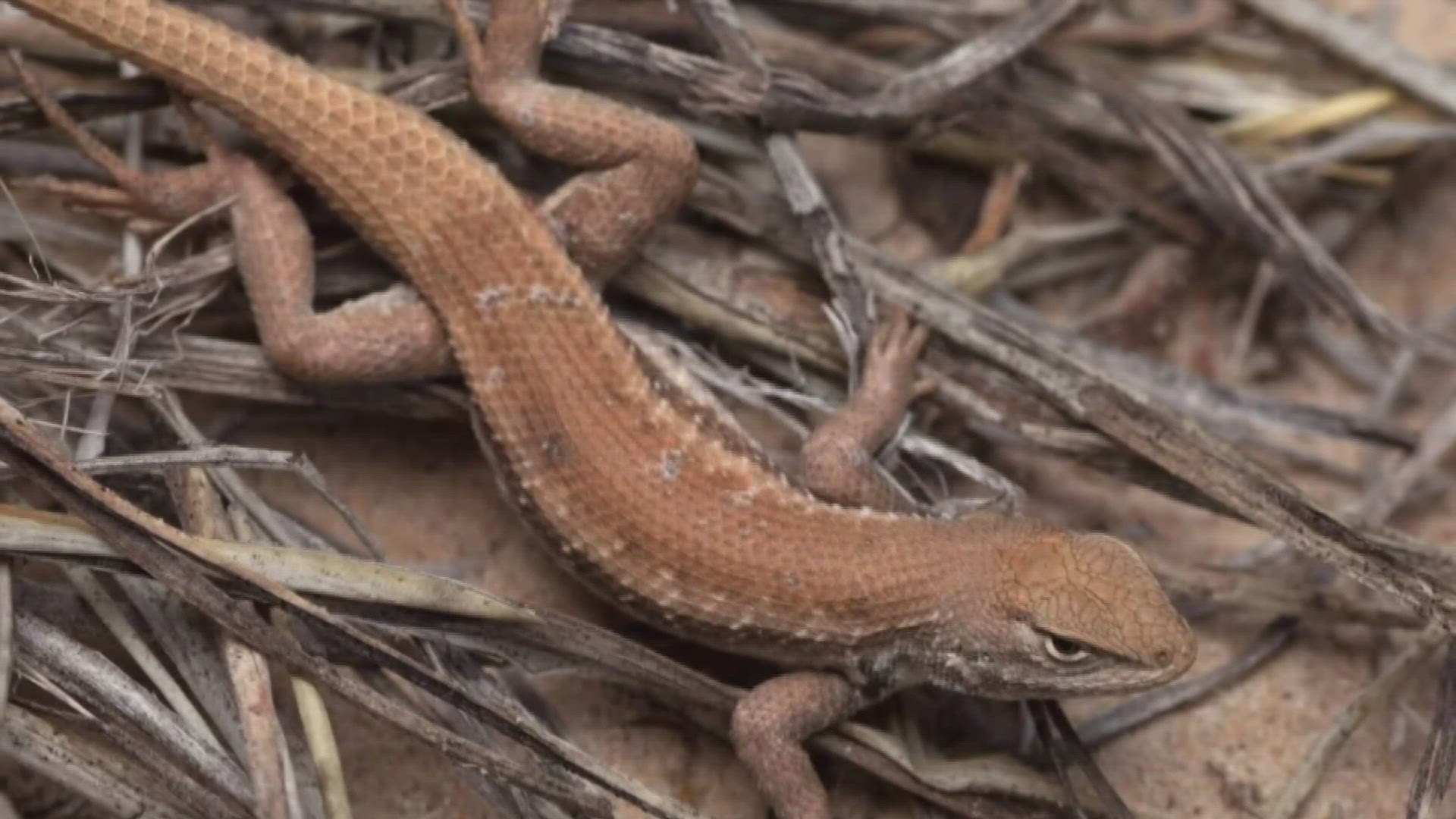MIDLAND, Texas — The dunes sagebrush lizard was recently added to the endangered species list by the U.S. Fish and Wildlife Service, preventing it and its habitat from destruction.
However, the implications behind this could have an impact on the overall production of oil and gas in the Permian Basin.
“That means that anywhere where the habitat for that species exists, whether it's private land, state-held land or federal land will have new restrictions on what you can and can't do on that property,” said Stephen Robertson, the Permian Basin Petroleum Association executive vice president.
Any disturbance to the lizard's habitat that could potentially harm either the lizard itself or the habitat could result in civil or criminal penalties.
It also means that there is now a lot more paperwork to go through when trying to set up any type of operation.
“If you have operations on lands that are determined to be habitat for the species, you will now have to go to the federal government to get permission to take any action on that land," Robertson said. "Whether it's the development of a road, whether it's the installation of a fence, pipelines, electrical transmission, distribution lines, let alone the drilling of any kind of oil and natural gas assets out there.”
Many within the oil and gas industry have opposed the lizard being added to the endangered list. They claim that conservation work has already been done at both the state and local levels.
“Unprecedented state and local led conservation efforts have already done a tremendous amount to preserve the habitat for the species and invest millions of dollars to try to help the species survive, if not even thrive," Robertson said. "The federal government has decided that states can't handle this type of operation, and that they need to step in which most people locally would say thank you, but no, thank you.”
It’s been an ongoing battle since 1982, when the U.S. Fish and Wildlife Service first proposed adding the lizard to the endangered species list.
When a decision like this is made, it can be challenged by other parties, starting the analyzation process all over again.
“They make an ultimate decision that no, this species, whether it's the lizard or whether it's the lesser prairie chicken - which we also deal with out here - or any other number of species, doesn't meet the criteria to be listed on the Endangered Species Act," Robertson said. "As soon as they make that decision, they can be bombarded with other petitions by parties that want that species listed. So they have to go back into that same process and make a determination.”
Robertson also said the biggest effect wouldn't be just on the businesses or the oil and gas production, but on the people who work in those businesses.
“So i think in the least, this type of action from the federal government has a chilling effect on further development of resources out here in the Permian Basin, and so that will have an impact on people," Robertson said. "What exactly that impact is truly, the worldwide demand for oil natural gas impacts and what we do out here more than anything else.”

